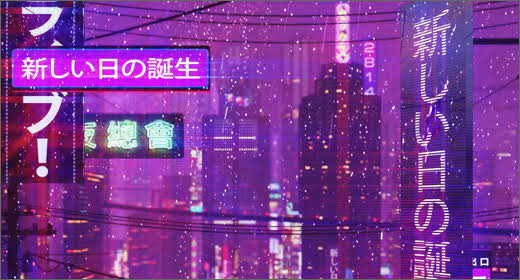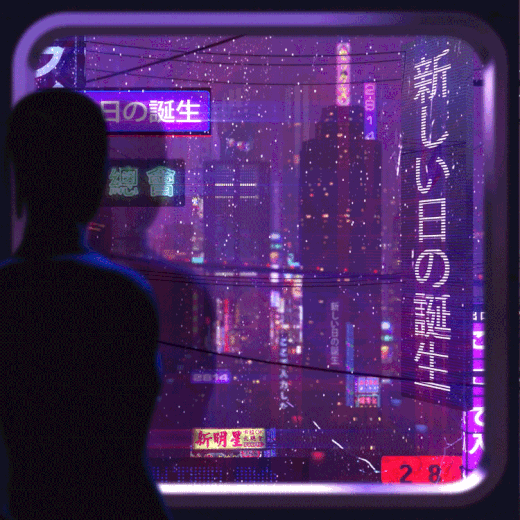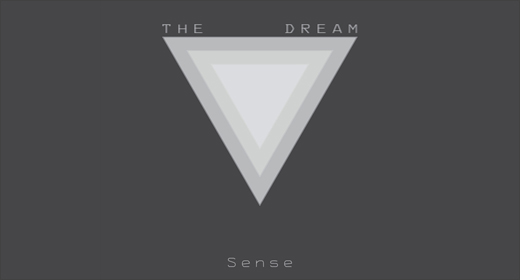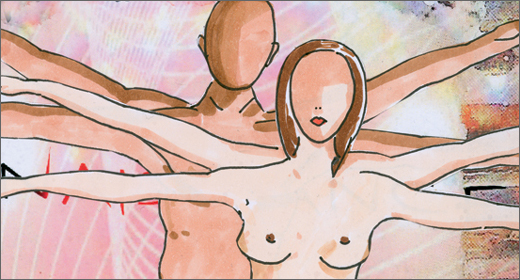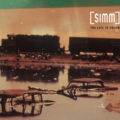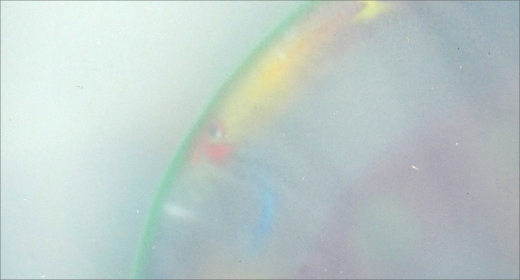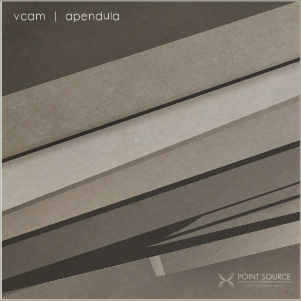新しい日の誕生 (Birth of a New Day) isn’t an album that begins, it’s one you arrive at, as if slowly waking from a fever dream in the back of a car approaching that purple, neon-tinged city pictured on the cover.
Don’t you just hate being late to the party? All the good music has already been played and you’re down to the questionable requests of work colleagues you never really got on with or got to know. The place is littered with empty vessels and full ashtrays, that one goth girl is hurling the last of her cider and blackcurrant into the kitchen sink, everyone else is so drunk you’ve missed all dancing, the lounging around and the latest memes, and it’s too late to catch up or find any of it even remotely funny?
That’s crowd-funded releases… for me, at any rate. Always too late to the party, by which time they’ve been and gone, only to be replaced by ridiculously price inflated copies flipped on eBay and Discogs by anonymous gobshites with no real interest at all.
One such release turned out to be 新しい日の誕生 (Birth of a New Day), the sophomore album by 2814, the collaborative name for Hong Kong Express and t e l e p a t h テレパシー能力者. Originally released digitally and on very limited CD back at the start of 2015 followed in by a cassette in 2016, this review not so much late to the party as it is apologetic for its total absence. Nevertheless, 2016 kicked up renewed interest in the album thanks to the crowd-funded double vinyl edition, the first vinyl release on the Dream Catalogue label. Judging by the various pictures available on the web, it’s truly something to behold.
Actually, don’t you hate parties, period? Vaporwave is a much-talked about genre, scene, ‘a e s t h e t i c’ or whatever the hell you want to call it. It has had long enough now to spawn several different sonic sub-genres of its own, establish a vocal and opinionated fan base together with an artistic framework that’s been jumped upon and dragged down by the masses into a sea of cheap, slowed-down Diana Ross song dross, to the point where it has been declared dead several times already. It’s difficult to even try and describe it without seeming like an ignorant jerk at this point. So I’m going to stop there.
Even when vaporwave is purveyed by exceptionally clued-up curators like Dream Catalogue or Ailanthus, it’s hard to actually divine those few releases that really connect with you, not to mention obtain them on a physical format you can actually play (curse you cassettes!), if you’re that way inclined.
Nevertheless, Dream Catalogue is a prime example of a label distributing at least one branch of vaporwave (hard vapour? dreamvapour? I just don’t know…) that pays close attention to the thematic details of any particular release, so it’s no surprise that many of the genre’s key players like Vaperror, HKE (label-owner David Russo’s solo project), t e l e p a t h テレパシー能力者, wosX and death’s dynamic shroud.wmv are present among the roster.
Anyway, 新しい日の誕生 (Birth of a New Day) has rapidly become known not only as one of the best albums in its field, but also one of the most accessible, in part perhaps because it perfectly straddles the realms of vaporwave and classic, thematically strong ambient music. From the Blade Runner and Wong Kar Wai inspired album artwork that deliberately sets out to bait the sci-fi loving, Western male audience through to the consistent tone and pace of the album, it’s easy to see why this is so.
新しい日の誕生 (Birth of a New Day) isn’t an album that begins, it’s one you arrive at, as if slowly waking from a fever dream in the back of a car approaching that purple, neon-tinged city pictured on the cover. The wowing pads and whispering voices of “恢复 (Recovery)” give way to the soft, crowd-lined street hubbub of the city, the loungey brushwork and piano keys, ringing melodies and thick layers of ambient drone a muzzy wake up call. You know this kind of album is doing its job if it manages to make the wail of passing police cars feel both familiar and relaxing at the same time.
“遠くの愛好家 (Distant Lovers)” plays out like an urban lullaby, all isolated, almost child-like melodies and distant textures evoking the most plangent and introspective moments of Vangelis’ most famous soundtrack, all wreathed in field-recorded and sampled city sonics: underground trains pulling in and out, indecipherable PA announcements, muted passing traffic, the works.
新しい日の誕生 (Birth of a New Day) is hardly one-note either. The persistent background wail of “新宿ゴールデン街 (Shinjuku Golden Street)” or the distorted whorl of “悲哀 (Sorrow)” take the album into almost haunted territory, whilst the head-spinning mesmerism of the phasing “テレパシー (Telepathy)” is pure, hypnotic genius. It’s almost a shame it isn’t the track that closes the album, in fact, with it’s Wong Kar Wai sampled postscript before the sudden jolt of the final, all waterfall trickle, mechanical steam and distant thunder.
And then there’s “真実の恋 (True Love),” which in all honesty must be one of the most sublime, Junoesque slices of ambient I’ve ever experienced. The most beatific of heat-haze distorted, scorched music box melodies are patched directly into the brain, evoking memories of loss and childhood, while the warmest of bass tones pulses and throbs under a torrent of soundstage drenching rain and thunder. If you’ve ever seen ‘In The Mood For Love,’ you’ll understand the place from which this utterly flawless masterpiece emanates.
None of that really does even an ample job of describing just how immersive, soulful and incredibly atmospheric this work really is, and if it all sounds like it’s mining familiar territory that’s fair enough. 新しい日の誕生 (Birth of a New Day) isn’t exactly treading new ground. What it proves, however, is that the mine is far from depleted; that there are still plenty of gems to unearth. And that’s what this is, a glittering jewel that’s pretty much perfect in every way.
Could we get a repress please?
新しい日の誕生 is available on Dream Catalogue.






